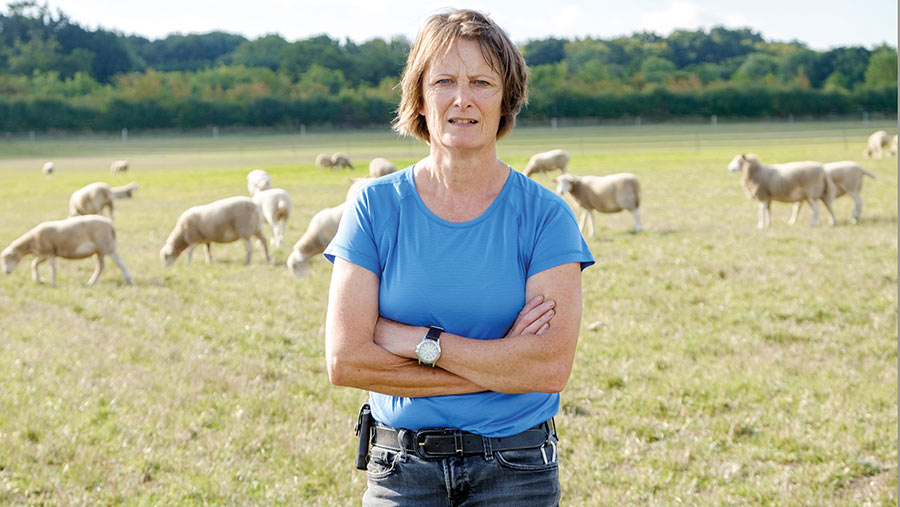Farmer Focus: Time to say goodbye to the sheep flock
 © Jason Bye
© Jason Bye I usually avoid mentioning the weather in these articles because by the time it is in print, what I have written seems irrelevant, but we could really do with a soaking.
I will be happy to look foolish if it is pouring by the time you read this. The last useful rain was 15mm four weeks ago, and crops are now needing more.
We have highly expensive borage seed sitting in the shed and that is just where it will stay until some moisture materialises.
They say the later drilled borage has the best quality oil, so we are taking comfort from that and holding on.
See also: How a Scots wheat grower hits spray timings across 15 farms
I have just finished my last lambing. It has gone well, with the Exlana ewes living up to their reputation of lambing by themselves, producing strong lambs and being good, milky mothers.
However, we have sadly taken the decision that the sheep must go.
Since I am no longer living at the farm, it has been hard to be in the right place at the right time. And to be honest, the sheep are not bringing what we had hoped they might to our system.
It seems logical to have sheep grazing our cover crops in the winter, and on herbal leys in spring and summer.
Outwintering sheep on London Clay is not ideal, though.
The poaching they can potentially do is not made up for by the fertility they might bring, and to really make a difference we would need 1,000 head, not 200.
We haven’t got enough labour to move them frequently and make that work. It saddens me because I enjoy working with sheep and I still firmly believe that Exlanas are a modern breed for today’s farming.
We will continue to have cover crops using species that are easily managed without grazing.
The only thing I am pleased about with the decision to give up the sheep is that I have given up the task my husband would never help with: I have castrated my last lamb.

